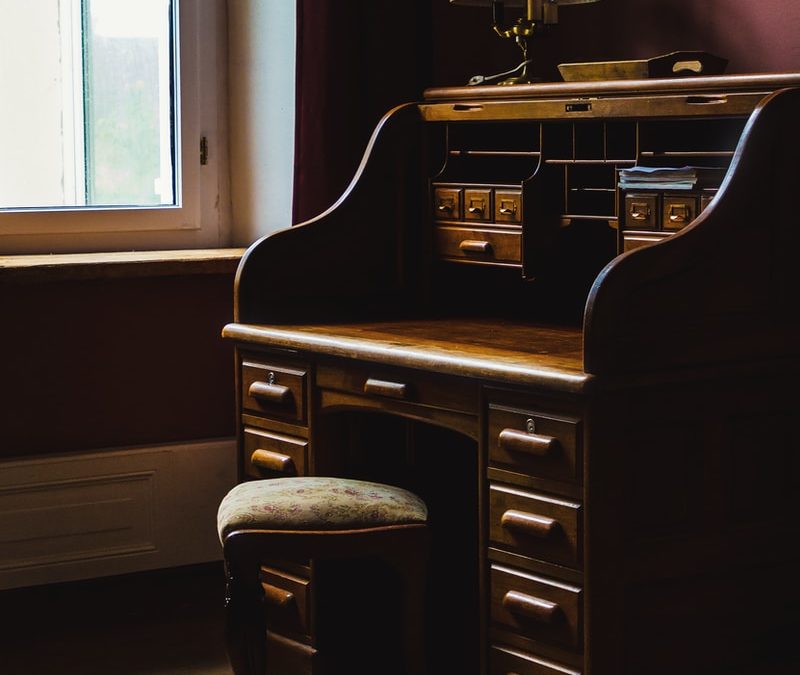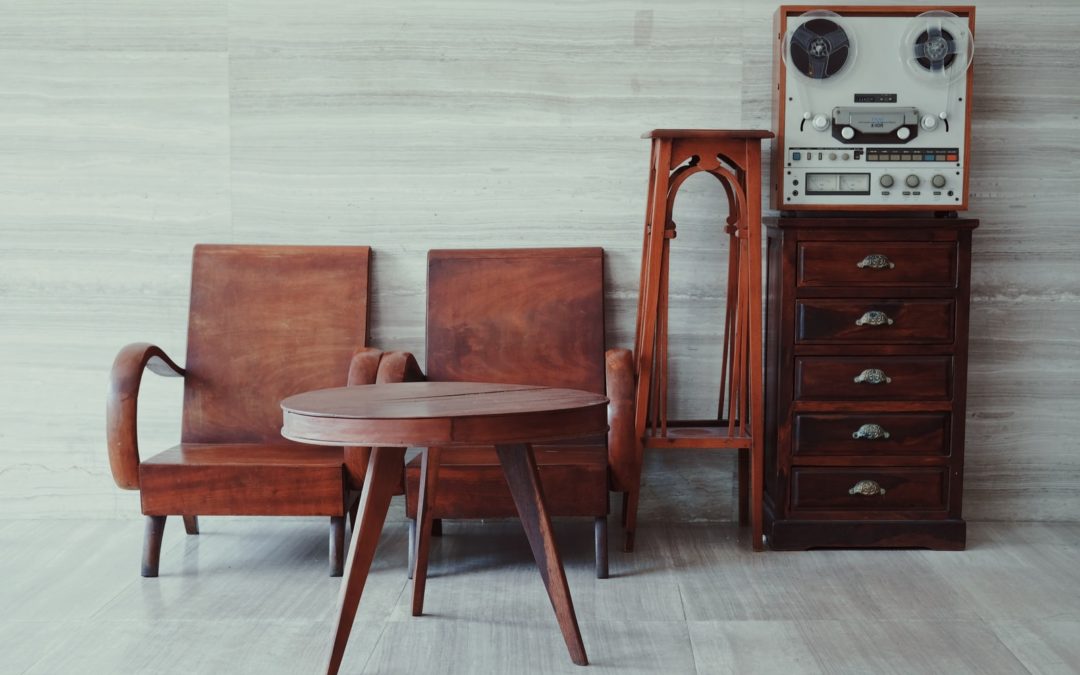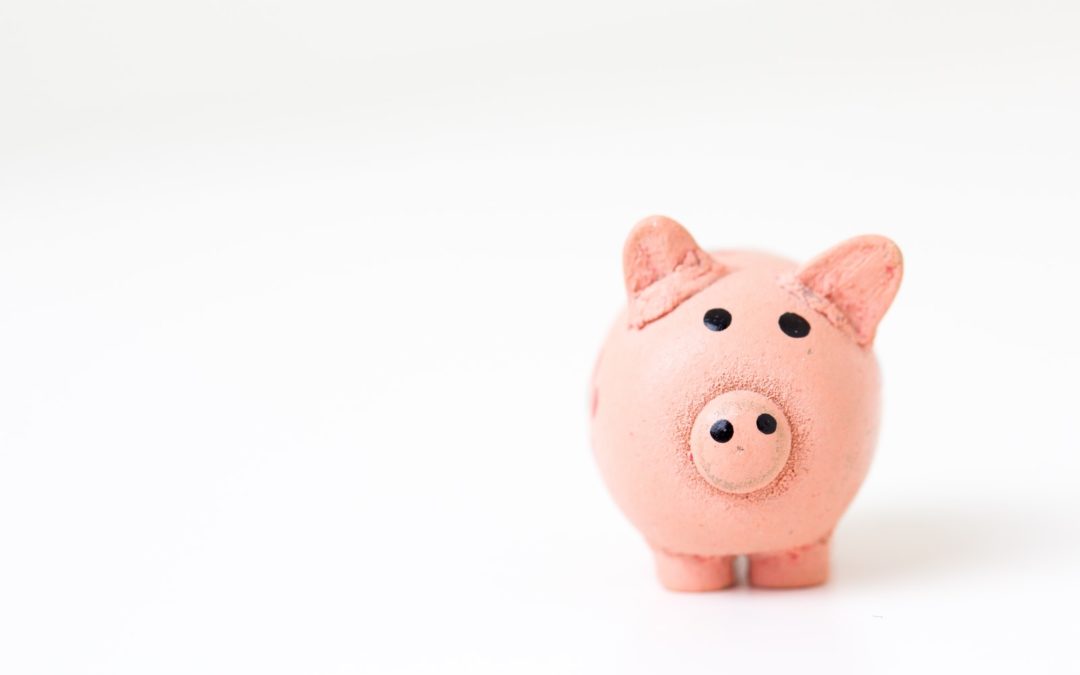
by admin | Nov 18, 2021 | Declutter
The things that find their way into you home from a previous generation are not valuable because of their age, but more so because of the emotional connection you had to the person it once belonged to. This could be something that belonged to one of your parents, or perhaps your grandparents. The personal stories you have had told to you about this person or the documents you have seen which show you something of their life and circumstances, these are just as much pieces of your family history as the physical items that survive in your home.
Let Heirlooms move within Your Family - just because you don't want to hang on to your Uncle Bob's massively heavy two volume collection of The 1938 World Encyclopaedia doesn't mean that you have to throw this away or wait for a few months for it to be listed and sold via an online auction platform. Put the word around that you have this to go to a good home and you might discover a cousin who would love it, with or without any pre-existing good memories of Uncle Bob.
Create a Scrapbook - Gather together some family pictures, from your childhood, or the life of your parents and grandparents. This way you don't have to hang onto hundreds of images, but can find a few dozen pictures, along with marriage certificates, holiday postcards, travel tickets and school reports, to create something which can be cherished and which will trigger plenty of good thoughts on its own.
Let the Item have a New Life - If you decide that the piece is good enough for someone other than yourself to cherish, give thought to where it might be better placed. This could be with a family member, friend or someone whom you know would appreciate it and give it a good home. The item could help them set up home, downsize when they are starting over or simply be a gift they would appreciate to cheer up an aspect of their dwelling.
Mortality and More - When my Grandpa on my Mum's side bought himself a writing desk, a bureau to be more accurate, it was 1927 and he was not yet married. So much of his life was ahead of him. He had not met my grandmother. Fast forward ninety plus years and I have that bureau as my own writing desk now. I never met John Harris. But his widow was my Grandma Alice and I loved visiting her. When she passed away the desk came to my Mum, and as a preschooler I was fascinated by the closing front cover and it's hinges, by the spiral turned legs. I loved the little felt lined drawers and the leather cover of the desk. The smell of the bottles of ink and the balance of the pens inside it all drew my attention. During my senior school years I did my homework on the leather top surface of the opened bureau. This piece of furniture has lived in four houses and served several generations of our family. Previous owners are long since dead and buried and I think sometimes about what will happen to this piece of furniture going forward with my own demise. Will one of my sons want it for their own place? He doesn't need it while he is at university. He may not have space for it in his first home. He might just not want it.
You see the problem here in this simple example of a piece of wooden furniture that has so much more history now than when a young bachelor called John Harris bought it simply because he liked it. We complicate an inanimate object by giving it meaning, by wrapping it with the history we know and the memories we imagine and part recall.
We imbue these possessions with those same magical qualities which I have written of elsewhere and which we gather about us. We do this because we are human and to make sense of the world around us we have to give meaning or significance to everything we see or do. Every small ornament, trinket, or medallion. Each item of clothing or piece of furniture. To everything we add a story. It is how we cope with so much in our lives, to differentiate one thing or experience from another potentially similar item or event. It is precisely because of this attaching of meaning, memory and significance that we find such struggle in letting go of many of the items we have in our homes.
Find ways to identify the stories and the emotions that form some part of your nostalgic connection to your belongings. If you can encapsulate these into your journal and into the photos you take and share, you will find it so much easier to let go of what no longer needs you to hold on to it. By letting something go you allow it a new life and a fresh purpose elsewhere.

by admin | Nov 4, 2021 | Declutter
We all love to attach significance to each thing we bring into our home. The most ordinary things can seem difficult to get rid of because we attach such meaning to them. It could be a pencil, a shirt, a saucepan, a pair of shoes or a box of toys. These should be easy to pick up, consider and then decide on whether to Sell, Donate, Gift or Bin each thing.
This is all very well with things we have bought because of their function or utility, but what do we do with things that belonged to a previous generation of our family. The single biggest obstacle to us making a good job of dealing with the stuff we have accumulated is the sentimental one, and this is always exaggerated by family connection.
When you want to move closer to the significance of some of the objects in your home and discover the real emotional connection you have to each piece, here are some simple techniques that may be useful.
Let Heirlooms move within Your Family - just because you don't want to hang on to your Uncle Bob's massively heavy two volume collection of The 1938 World Encyclopaedia doesn't mean that you have to throw this away or wait for a few months for it to be listed and sold via an online auction platform. Put the word around that you have this to go to a good home and you might discover a cousin who would love it, with or without any pre-existing good memories of Uncle Bob.
Let Go of Gifts that Get You Down - A gift is given freely or shouldn't be given at all. Where it feels like a weight around your shoulders, let it go as soon as you can, without reservation or doubt over letting it go. Have your house be a place of peace and joy by ensuring that the things you didn't choose are still in line with your values and visions about your world. If you feel awkward about it, let it go.
Choose what is a 'Keeper' - Hang on to the crazy, the cool, the beautiful and the items that are evocative of good times and which give you that same sense or feeling when you look at them or hold them in your hands and visualise the good times they represent.
Create a Scrapbook - Take family pictures, from your childhood, or the life of your parents and grandparents. This way you don't have to hang onto hundreds of images, but can find a few dozen pictures, along with marriage certificates, holiday postcards, travel tickets and school reports, to create something which can be cherished and which will trigger plenty of good thoughts on its own.
Recycle, Reuse, Remodel - Some things you love are gorgeous, but bulky. A jacket, an heirloom blanket, a wedding dress, a uniform no longer worn. You can create some special keepsake pieces with these, and choose to do the cutting and stitching yourself or take them to a specialist tailor or dress maker and seek their help and involvement in making a new item that serves to remind you of the positive experiences, memories and good times you associate with the items that no longer need to take up so much space. Bed throws, quilts and scatter cushion covers come to mind as potential remakes of the originally larger items which can be repurposed. An old piano can be repurposed as a drinks cabinet. A pedal operated sewing machine table can find new life as a desk or eye catching curio stand. A stone or diamond from a ring that is not your style, can be extracted and reset into a piece of jewellery that delights you.

by admin | Nov 3, 2021 | Simple Self Help
Albert Einstein allegedly described the way that you can make money from the interest on your savings as the "eighth wonder of the world". He was talking about the miracle of Compound Interest.
He was justified in his excitement about the way the bank will give you extra money for allowing them to keep your money on deposit. They will lend your money to other people who have become borrowers, and in exchange will reward you with a percentage increase on your own initial money. The money they give you is the result of compound interest.
The sooner you can put some money aside, the better. If you can then add a regular amount - no matter how small - to your savings, you will see your money grow time and time again over the years. This is the principle of money working for you whether you are working, sleeping or playing.
You can start by trying to save an amount from your earnings each month, an amount that is the same each pay check, but even easier than this is to go for a percentage of each amount. The reason that a percentage works so successfully calculate. No matter how much you earn or bring in each pay period, if you tell yourself that you are going to save 10% or 5% your mind will always be able to calculate the amount you need to deduct from the pay check.
Get into this habit of paying yourself first. It will always stand you in good order and create the growth of the savings.
If you allow yourself to think that you should pay your bills and your expenses first and intend to save what is left - guess what - there will be nothing left.
But if you do set aside that 10% from everything you receive then before you look at the bills you have the comfort of knowing you already have 10% set aside as savings for the long term. And almost by magic the 90% that you have left for everything else seems to expand and to grow such that you do not miss the 10% you have already put safely away for your future.
Get started now and you will love it and what it does for you. Enjoy knowing the pleasure of having a consistently growing nest egg for your future, and one which is within your own control and has been structured through your own diligence and wisdom. Each time you get a dividend or interest check, take some of the money and spend it lavishly on yourself, re-investing the remainder so that your balance continues to grow and bring more benefit.


